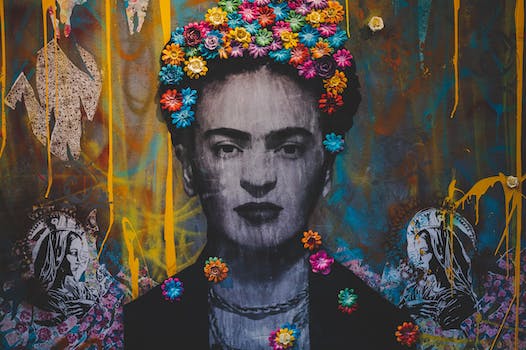

-
Table of Contents
Unveiling the cultural tapestry of The Big Lebowski.
Introduction
The Big Lebowski, directed by Joel and Ethan Coen, is a cult classic film that has garnered a dedicated following since its release in 1998. While often celebrated for its quirky characters, offbeat humor, and memorable quotes, the film's cultural impact extends far beyond its initial reception. In this essay, we will delve into the multifaceted cultural history of The Big Lebowski, exploring its influence on various aspects of popular culture, its status as a cult film, and its enduring legacy in the years since its release.
The Influence of The Big Lebowski on Pop Culture
The Big Lebowski, directed by Joel and Ethan Coen, is a film that has achieved cult status since its release in 1998. While it may not have been a commercial success at the time, it has since become a beloved classic, with a dedicated fan base that continues to grow. One of the reasons for its enduring popularity is its significant influence on pop culture.
The film's impact on pop culture can be seen in various ways. Firstly, The Big Lebowski has spawned a plethora of memes and catchphrases that have become ingrained in popular lexicon. Phrases like "The Dude abides" and "That's just, like, your opinion, man" have become part of everyday conversation, even for those who have never seen the film. These quotes have been endlessly shared on social media platforms, further solidifying their place in popular culture.
Additionally, The Big Lebowski has inspired countless fan events and gatherings. Lebowski Fest, an annual celebration of the film, brings together fans from all over the world to celebrate their love for The Dude and his adventures. These events often include costume contests, trivia competitions, and screenings of the film. The fact that these gatherings continue to thrive more than two decades after the film's release is a testament to its enduring influence.
Furthermore, The Big Lebowski has had a significant impact on the fashion world. The character of The Dude, played by Jeff Bridges, has become an iconic figure in terms of style. His laid-back, slacker aesthetic, complete with his signature cardigan and jelly sandals, has been emulated by fashion enthusiasts and designers alike. The film's influence on fashion can be seen in the prevalence of "Dude-inspired" clothing lines and the incorporation of elements from The Dude's wardrobe into mainstream fashion.
In addition to its impact on fashion and language, The Big Lebowski has also influenced other forms of media. The film has been referenced and parodied in numerous television shows, movies, and even music videos. Its unique blend of comedy, noir, and surrealism has inspired filmmakers and writers to explore similar themes and storytelling techniques. The film's influence can be seen in works such as "Burn After Reading" and "Inherent Vice," both of which share a similar offbeat sensibility.
Moreover, The Big Lebowski has had a lasting impact on the art world. The film's distinctive visual style, characterized by its use of vibrant colors and unconventional camera angles, has inspired artists and photographers. The film's iconic imagery, such as the bowling alley dream sequences and the rug that ties the room together, has been recreated and reimagined in various artistic mediums. The Big Lebowski has become a source of inspiration for many artists, who seek to capture its unique atmosphere and aesthetic.
In conclusion, The Big Lebowski's influence on pop culture cannot be overstated. From its memorable quotes and catchphrases to its impact on fashion, language, and other forms of media, the film has left an indelible mark on popular culture. Its enduring popularity and dedicated fan base are a testament to its multifaceted cultural history. The Big Lebowski continues to be celebrated and appreciated, proving that its influence will continue to be felt for years to come.
Analyzing the Sociopolitical Themes in The Big Lebowski

The Big Lebowski, directed by Joel and Ethan Coen, is often hailed as a cult classic and has garnered a dedicated following since its release in 1998. While the film is primarily known for its quirky characters and offbeat humor, it also delves into deeper sociopolitical themes that are worth exploring.
One of the central themes in The Big Lebowski is the disillusionment with the American Dream. The protagonist, Jeff "The Dude" Lebowski, is a laid-back and carefree character who embodies the antithesis of the traditional American work ethic. He spends his days bowling and drinking White Russians, seemingly detached from the pursuit of material success. This stands in stark contrast to the other characters in the film who are driven by ambition and greed.
Through The Dude's interactions with these characters, the film critiques the capitalist society that values wealth and power above all else. The character of Jeffrey Lebowski, also known as "The Big Lebowski," represents the epitome of this capitalist mindset. He is a wealthy businessman who exploits others for his own gain and is willing to go to great lengths to maintain his status. The film suggests that this pursuit of wealth and power ultimately leads to a hollow existence, devoid of true happiness and fulfillment.
Another sociopolitical theme explored in The Big Lebowski is the portrayal of masculinity in American society. The film presents a diverse range of male characters, each representing different aspects of masculinity. The Dude, with his laid-back attitude and non-conformist lifestyle, challenges traditional notions of masculinity. He rejects the hyper-masculine ideals of aggression and dominance, instead embracing a more relaxed and accepting approach to life.
In contrast, characters like Walter Sobchak and Jesus Quintana embody a more aggressive and macho version of masculinity. Walter, a Vietnam War veteran, is prone to violent outbursts and is obsessed with asserting his dominance. Jesus, a flamboyant and arrogant bowler, exudes confidence and sexual prowess. These characters serve as a critique of toxic masculinity, highlighting the destructive consequences of rigid gender roles and societal expectations.
The film also touches on issues of class and social inequality. The Dude, despite his lack of material wealth, is content with his simple lifestyle. He is surrounded by characters from different social classes, including the wealthy Lebowski, the working-class bowlers, and the nihilists. The interactions between these characters highlight the stark disparities in wealth and privilege, as well as the tensions that arise from these differences.
Furthermore, The Big Lebowski incorporates elements of political satire. The character of Maude Lebowski, an eccentric artist and feminist, represents a critique of the art world and its commodification of creativity. Her avant-garde art and feminist ideals challenge the traditional notions of beauty and gender roles. The film also satirizes political figures, such as the character of Jackie Treehorn, a pornographer who symbolizes the corrupting influence of power and wealth.
In conclusion, The Big Lebowski is more than just a comedy; it is a thought-provoking exploration of sociopolitical themes. Through its portrayal of disillusionment with the American Dream, masculinity, class, and political satire, the film offers a multifaceted critique of society. Its enduring popularity and dedicated fan base are a testament to its cultural significance and the resonance of its themes.
Exploring the Film's Enduring Cult Following
The Big Lebowski, directed by Joel and Ethan Coen, was released in 1998 to mixed reviews and a lukewarm box office performance. However, over the years, the film has gained a dedicated and passionate cult following that continues to grow to this day. This article aims to explore the reasons behind the film's enduring popularity and its multifaceted cultural history.
One of the key factors that contributed to The Big Lebowski's cult following is its unique blend of genres. The film is often categorized as a comedy, but it also incorporates elements of film noir, crime drama, and even surrealism. This eclectic mix of genres appeals to a wide range of viewers, as it offers something for everyone. Whether you enjoy dark humor, intricate plotlines, or bizarre characters, The Big Lebowski has it all.
Another aspect that has contributed to the film's cult status is its quotability. The Big Lebowski is filled with memorable lines and catchphrases that have become part of popular culture. From "The Dude abides" to "That's just, like, your opinion, man," these quotes have been endlessly repeated and referenced in various contexts. This has not only solidified the film's place in the cultural lexicon but has also created a sense of community among its fans who can bond over their shared love for these iconic lines.
Furthermore, The Big Lebowski's cult following can be attributed to its complex and enigmatic characters. The film's protagonist, known simply as The Dude, played by Jeff Bridges, has become an iconic figure in cinema. His laid-back attitude, signature wardrobe, and philosophical musings have resonated with audiences, who see him as a symbol of nonconformity and rebellion against societal norms. The supporting characters, such as Walter Sobchak, played by John Goodman, and Jesus Quintana, played by John Turturro, are equally memorable and have become fan favorites in their own right.
In addition to its characters, The Big Lebowski's cult following is also fueled by its rich symbolism and underlying themes. The film explores themes of identity, existentialism, and the search for meaning in a chaotic world. It presents a satirical critique of American consumerism and the pursuit of the American Dream. These deeper layers of meaning have sparked countless discussions and interpretations among fans, who find themselves drawn to the film's intellectual and philosophical aspects.
Moreover, The Big Lebowski's cult following has been further amplified by its annual celebration known as Lebowski Fest. Started in 2002, Lebowski Fest brings together fans from all over the world to celebrate the film through bowling, costume contests, and screenings. This event has become a pilgrimage for die-hard fans, who relish the opportunity to immerse themselves in the world of The Big Lebowski and connect with like-minded individuals.
In conclusion, The Big Lebowski's enduring cult following can be attributed to its unique blend of genres, memorable quotes, complex characters, rich symbolism, and annual celebration. The film's ability to resonate with audiences on multiple levels has allowed it to transcend its initial lukewarm reception and become a cultural phenomenon. As The Dude himself would say, The Big Lebowski has truly abided in the hearts and minds of its fans, ensuring its place in cinematic history.
Q&A
1. What is the cultural significance of The Big Lebowski?
The Big Lebowski has gained a cult following and has become a cultural phenomenon due to its unique blend of comedy, noir elements, and memorable characters.
2. How has The Big Lebowski influenced popular culture?
The film has had a lasting impact on popular culture, inspiring fan conventions, themed events, and even a religion called Dudeism. It has also influenced other films, TV shows, and music.
3. Why is The Big Lebowski considered a classic?
The Big Lebowski is considered a classic due to its clever writing, iconic performances, and its ability to resonate with audiences across generations. Its themes of identity, friendship, and the absurdity of life continue to captivate viewers.
Conclusion
In conclusion, the cultural history of The Big Lebowski is multifaceted and warrants rethinking. The film has evolved from a box office disappointment to a cult classic, with its themes of identity, counterculture, and the American Dream resonating with audiences. Its impact extends beyond the film itself, influencing fashion, music, and even a religion. The Big Lebowski's enduring popularity and cultural significance highlight its ability to provoke thought and inspire reinterpretation, making it a truly iconic piece of cinema.










